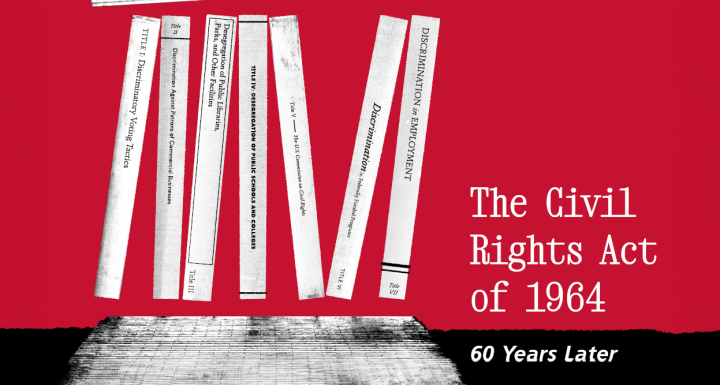
The racial wealth gap, 60 years since the Civil Rights Act
The racial wealth gap, 60 years since the Civil Rights Act

The National Urban League is out with its latest assessment on the State of Black America. The report measures racial inequality in U.S. society and the economy: employment, health care, housing, criminal justice and much more.
This year’s report comes out an even 60 years since the passage of the Civil Rights Act of 1964. Marc Morial is president of the National Urban League. He spoke with “Marketplace Morning Report” host David Brancaccio, and the following is an edited transcript of their conversation.
David Brancaccio: Your report shows that racial economic inequality has, in some ways, widened in some areas. The report cites data that in the year 2000, a Black man earned 75 cents for every dollar earned by a white man. And then by 2024, this goes down to 71 cents — 75 cents to 71 cents. That seems like the wrong direction.
Marc Morial: It is the wrong direction. And it underscores that while progress has been made in opening doors, economic equality, economic parity in this country is elusive. If you look at many of our urban communities, Chicago being one, the decline of manufacturing, the decline of blue collar jobs and the continued persistence of both explicit and implicit bias in hiring and promotions. You can never discount that.
Brancaccio: Help me understand the important part of this report that calculates, compared to a just society, where people are getting their fair share — this report finds that still African American people are still missing out on 24% of the pie. Is that how I should understand it?
Morial: That’s a good way to understand it. What does this index do? It compares the social and economic status of Black Americans to white Americans. It looks at 300 pieces of data. We’ve seen some closures in the education gap. But there’s still a gap — the health care gap, the economic gap. In social justice, which covers the criminal justice system, we’ve actually seen a loss of ground in a significant way. We can track where we move forward, we can track where we move backward as a nation, but also, it helps create a roadmap about the areas where intensive work needs to be done.
Brancaccio: It depends on how you even cut the statistics. For instance, I was on the air last April talking about unemployment among Black people falling below 5% for the first time on record. This is what happened in the last year, right? But white unemployment was 3.4%. So you still see the gap.
Morial: The gap is still there. And the gap, to some extent, has narrowed from maybe two [percentage points] to one and a half, to one. But is it sustainable? Sometimes today, when you are even employed, that paycheck may not go far enough. And people say, “Well, it’s inflation,” but it’s something more specific than that. For the average American, it’s housing costs. President Biden had a plan to expand investments in housing in his original “Build Back Better” America plan. What happened to it? [Democratic Sen.] Joe Manchin [of West Virgnia] did not support it. And it was deleted from the plan that eventually got passed. To make housing more affordable, we’ve got to build, we’ve got to eliminate redlining in total. And we’ve got to create better access to affordable housing for all.
There’s a lot happening in the world. Through it all, Marketplace is here for you.
You rely on Marketplace to break down the world’s events and tell you how it affects you in a fact-based, approachable way. We rely on your financial support to keep making that possible.
Your donation today powers the independent journalism that you rely on. For just $5/month, you can help sustain Marketplace so we can keep reporting on the things that matter to you.











